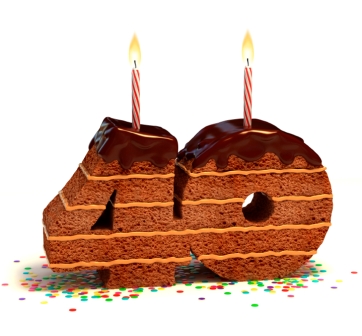Forty years ago this week, on April 7, 1972, Vermont legislators passed the Bottle Bill – innovative legislation to add a redeemable deposit on soda and beer bottles and cans. Vermont was only the second state in the nation, after Oregon, to enact a bottle redemption program. The idea was originally conceived as a way to fight litter, a problem marring Vermont’s scenic roadsides, parks, and other areas. The law gave people a monetary incentive to collect and return their bottles and cans, rather than tossing them out their car windows or in the garbage can.
The Bottle Bill proved successful beyond expectations, and today Vermont’s redemption program is by far our most successful recycling program. Over the past forty years, so many bottles and cans have been recycled through the Bottle Bill they would fill up more than three Empire State Buildings. Imagine if the Bottle Bill hadn’t been enacted and all that waste was choking our landfills and littering our roadsides. In fact, even with the expansion of curbside and drop-off recycling programs, studies show that bottles and cans covered under the Bottle Bill are recycled at more than double the rate of containers not covered under the program.
On the 40th anniversary of the Bottle Bill, it seems an appropriate time to both celebrate its incredible success, and to think about its future. We know the Bottle Bill works better than any recycling program we have. We also know that Vermont is running out of landfill space and legislators are working on legislation to mandate recycling. What better way to immediately improve our recycling rate than by expanding our most successful recycling program, the Bottle Bill, to cover additional beverage containers?
In 1972 when the Bottle Bill was passed, we simply didn’t have the beverage choices we do today. These days, more people are drinking beverages such as bottled water, flavored waters, iced teas and sports drinks. It doesn’t make sense that carbonated flavored water has a deposit but non-carbonated flavored water does not. Since our consumption patterns have changed, we should update the Bottle Bill to reflect this reality.
Moreover, the state could see immediate benefits from updating the Bottle Bill. A new study from VPIRG shows that covering additional beverages in the bottle redemption program would result in approximately 96.7 million more bottles and cans being recycled each year in Vermont, while also cutting our energy use and reducing our greenhouse gas emissions – equivalent to keeping 1,283 cars off the road each year. Updating the Bottle Bill would also create approximately 100 jobs in the Vermont region, and increase revenues for local businesses like redemption centers.
Further, the legislation would allow the state, rather than the beverage industry, to keep unredeemed nickels. This would provide an estimated $3.27 million dollars in annual revenue that the state could use to help fund recycling programs without raising taxes on anyone. This funding could be more important than ever if mandatory recycling is enacted.
Let’s take this historic moment – the Bottle Bill’s 40th Anniversary – to urge our legislators to add the Bigger Better Bottle Bill language to the mandatory recycling bill (H.485), and make it an even greater success story for Vermont.
This opinion piece by VPIRG Environmental Health Advocate Lauren Hierl was also published in the Times Argus, Brattleboro Reformer, Rutland Herald, Bennington Banner, and Burlington Free Press.

